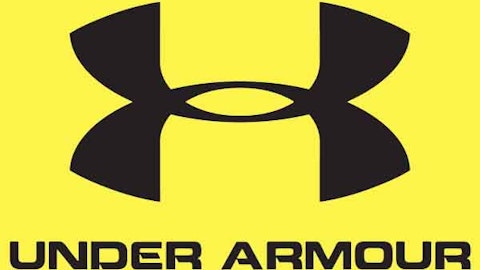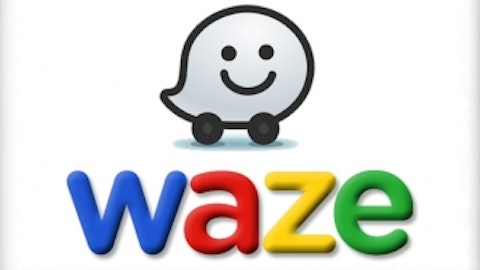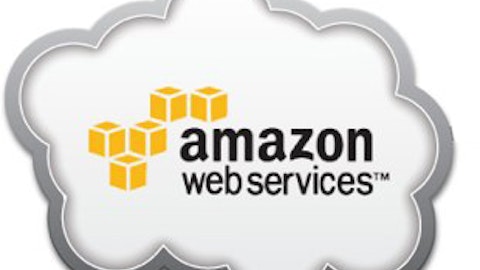The three big players in the e-reader market have very different strategies. As component prices drop, how will each compete in a progressively narrower market?
Apple Inc. (NASDAQ:AAPL)
Apple Inc. (NASDAQ:AAPL) has been interested in e-books — excuse me, iBooks — ever since the introduction of the iPad and its accompanying iBooks app. Back then, the e-reader application seemed like a side benefit. Amazon.com, Inc. (NASDAQ:AMZN) and Barnes & Noble, Inc. (NYSE:BKS)‘s e-readers were both under $200 and offered crisper screens, so anyone spending $499 on the iPad was unlikely to do so because they were pumped about reading books.
But since then Apple Inc. (NASDAQ:AAPL) has refined the iPad’s screen and, more significantly, released the cheaper and more portable iPad mini. It’s much easier to imagine yourself reading a book on that $329, 8″ device than on the comparatively weighty full-size iPad. And plenty of people do read on it. That’s a key aspect of Apple Inc. (NASDAQ:AAPL)’s e-book strategy — the captive audience it has from people who use their iPads and iPhones (and with OS X Mavericks, their Macs) for other things.
Another advantage is the rumored release of a new, Retina-screened iPad Mini. While still uncertain, it seems unlikely that Apple Inc. (NASDAQ:AAPL) won’t be upgrading the screen of their best-selling tablet. And when they do, the beautiful 254 Pixel Per Inc (PPI) display will make reading a joy, as it outstretches even Amazon.com, Inc. (NASDAQ:AMZN)’s current flagship, the Kinldle Paperwhite.
All this talk of tablets reminds me, though; Apple Inc. (NASDAQ:AAPL) doesn’t have an e-ink device. And, let’s be realistic, they probably never will — or at least not until these devices are significantly more refined. The low refresh rate and ghosting are so un-Apple Inc. (NASDAQ:AAPL). Regardless, this means that as competitors’ pricing for e-reader devices will likely drop more precipitously than Apple’s tablets, making consumers more likely to simply purchase an Amazon or Barnes & Noble, Inc. (NYSE:BKS) e-reader in addition to their tablet.
Barnes & Noble, Inc. (NYSE:BKS)
Speaking of competitors, Barnes & Noble, Inc. (NYSE:BKS) has shown impressive nimbleness in the market. Unlike its competitor Borders (R.I.P.), B&N had the gall to start creating electronics — a surprising prospect for a brick-and-mortar bookseller. But they’ve been rewarded for the move, and have used their retail stores impressively in marketing the Nook.
A complicating factor is that the company is potentially looking to spin off its Nook business. The news is obviously great for shareholders, who gobbled up B&N stock last month on a rumor that Microsoft is a potential buyer. But as Abram Brown pointed out in Forbes, B&N without Nook starts to look a lot like that other retailer I mentioned earlier. Gulp.
However, the e-readers prospects are uncertain. Last quarter’s numbers were weak, and that’s after B&N dropped the price of the Nook Simple Touch to $79. It will be a race to the bottom over the next few years, as tablet and e-reader makers slash their prices and component costs drop. Amazon seems more likely to win that race, considering their lack of concern with profits.
Amazon.com, Inc. (NASDAQ:AMZN)
Amazon.com, Inc. (NASDAQ:AMZN) has perhaps no greater strength (and no greater weakness) than its willingness to dive deep into the red. Many others have written about this fact, so I won’t contribute any further, but suffice it to say that anyone considering positions in Amazon should take into account the company’s disregard for the importance of profit.
Nonetheless, that disregard has led it to impressive success in the e-book market, with the dominant Kindle and tight integration with its web store. Time will tell of the success of the Kindle Fire, but there’s no question that the vanilla Kindle is (and will continue to be) the best-selling e-reader. With the regular Kindle at an all-time low, I think future sales bode well as long as tablets don’t catch up.
I also think the Paperwhite is a sign of things to come for Amazon and the broader e-reader market. The device is small, light, and has a very high resolution. It’s also over $100 (although cheaper if supported by ads). Nonetheless, I don’t think we’re far from a sub-$100 Paperwhite, and a $50 version doesn’t seem improbably over the next five or so years. It’s dangerous to forecast that far out, but I think a small, cheap Amazon e-reader has the potential for significantly greater popularity.
The bottom line
Amazon is the strongest contender in the e-reader wars, as long as you’re willing to swallow its unorthodox opinion on profits. The company has shown imagination and initiative in the market, and as costs continue to drop for e-reader components, they should be able to further undercut potentially competitive tablets. This makes Amazon a strong short to medium-term buy. Long-term prospects are less certain, as it will depend on whether e-readers can be competitively priced against tablets.
Barnes & Noble, Inc. (NYSE:BKS) is a bit of a wildcard. Its Nook has been impressively successful, but might be on the decline, and while a spin-off of the business is great for short-term investors, it puts the company’s long-term viability into question. This quarter’s numbers might provide good guidance for those willing to bet on a sale.
Apple is likely to continue to capture e-book sales, as its iPad Mini gains a Retina display and a (potentially) lower price. The company’s captive audience makes it a strong long-term buy in the e-reader market, although that depends on your opinion of Apple’s current valuation.
The article Where Are E-book Readers Going? originally appeared on Fool.com.
Steven Yenzer owns shares of Apple. The Motley Fool recommends Amazon.com and Apple. The Motley Fool owns shares of Amazon.com and Apple. Steven is a member of The Motley Fool Blog Network — entries represent the personal opinion of the blogger and are not formally edited.
Copyright © 1995 – 2013 The Motley Fool, LLC. All rights reserved. The Motley Fool has a disclosure policy.






